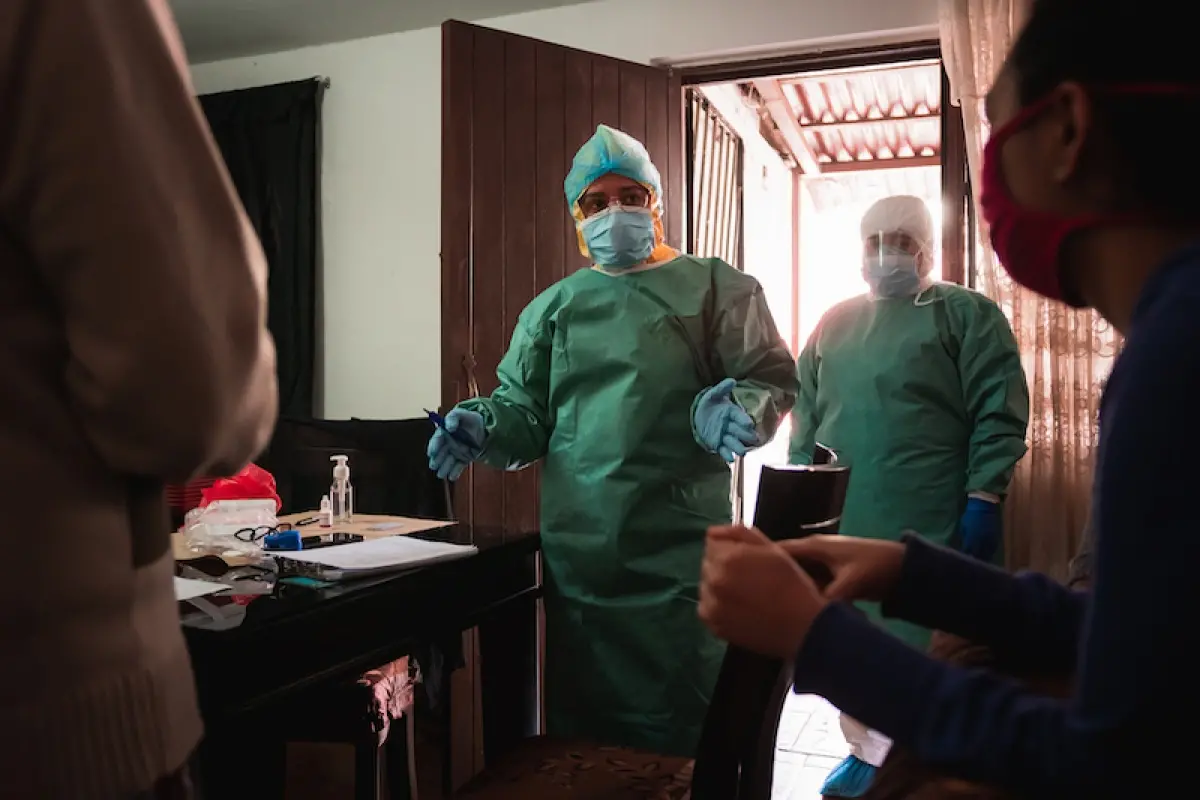Omicron’s Impact in PIH Countries Around the Globe

New COVID-19 variant affects already overwhelmed hospitals, employees
Posted on Jan 21, 2022

The COVID-19 pandemic persists.
As we enter the third year of the global public health emergency, the virus continues to mutate and spread in the absence of worldwide vaccination. Omicron, the latest highly contagious variant, has caused COVID-19 cases to skyrocket in many countries. In early 2022, a world record was set: more than 9.5 million new COVID-19 cases were reported within a week, according to the World Health Organization. In total, more than 5.5 million people have died from COVID-19 and more than 332 million cases have been reported. Hospitalizations–mostly among unvaccinated people–are rising too.
This has been a challenge for already strained hospitals and health care workers at Partners In Health (PIH) sites around the globe, including in Kazakhstan, Peru, Rwanda, and Sierra Leone, among others.
In Kazakhstan–where the president called for a two-week state of emergency on January 5 following political unrest and violence–clinicians are seeing a surge in cases, which the country’s ministry of health has attributed to the Omicron variant. In addition, the Delta variant is still present more than a year since it was first detected globally.
In Peru, the rate of infected people doubled last week compared to the previous week. PIH-supported facilities in the country have seen a rise in infections and hospitalizations, mostly among those who are not fully vaccinated. Compared to most countries, Peru is ahead of the curve with vaccination: about 80% of people have received two doses and 14% received a booster.
Rwanda is not far behind. As of January 9, about 60% of the population has received two doses. Unlike many sites, PIH-supported facilities in Rwanda have not seen an increase in hospitalizations. However, they are still experiencing a fourth wave of COVID-19 due to the Omicron variant. While cases have been mild or asymptomatic, there are still many people at risk who have yet to be vaccinated.
Although the Omicron surge is flattening across many parts of Africa, the impact of the variant continues to be felt in countries such as Sierra Leone. The surge affected many PIH staff members, who were unable to go to work during the holiday season, which put additional stress on service delivery. In communities across Kono District in the east, the spread of COVID-19 has mostly gone undetected due to a widespread shortage of tests. Most of the reported cases have been among inbound and outbound international travelers. There is a significant need for more tests and vaccines. Less than 4% of the population is vaccinated and less than 0.1% has received a booster shot.
Recently, PIH experts and fellow researchers published a report that highlighted the need for more mRNA vaccines–22 billion, to be exact, which they estimate is the number that must be manufactured and administered to control COVID-19 globally. Meanwhile, clinicians continue to build health systems by focusing on the vital 5 S’s–staff, stuff, space, systems, and social support–which are needed to respond to emergencies and provide lifesaving health care now–and beyond the pandemic.
Originally published on pih.org



